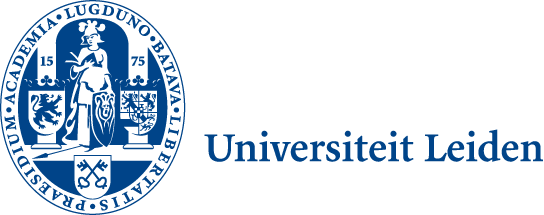Electives
The elective component can be filled with a broad range of courses, an extension of the research training projects or an extension of the specialisation-specific components. This page details the options students have for their electives.
The rules for electives are specified in the appendix to the OER. The following courses are allowed:
the core courses within or outside their specialisation
any MSc courses offered in the Science Faculty of level 400 or higher
any level 400 course from the BSc MST and LST programmes provided that these were not part of the student’s earlier studies
any MSc courses offered at the Science Faculty any other Dutch university (at the TU Delft this is the TNW Faculty)
Students are allowed to include theoretical courses and courses on academic skills (writing, communicating, presenting, ethics, business) as electives. Note that courses at the LUMC, other medical faculties and faculties other than TNW at TU Delft require prior permission from the Board of Examiners (see below).
In addition, these rules apply to filling the elective component:
an extension of the research training project component is limited to a maximum of 20 EC
an extension of the specialisation-specific components for BS and SCS is limited to a maximum 20 EC
The Board of Examiners will check the master's programme before graduation for unacceptable overlap. For example, students are not allowed to follow a very similar course on molecular biology in Leiden, Delft and Amsterdam. When in doubt about the overlap, check with the Board of Examiners in advance to avoid disappointment at graduation!
Other elective options than those stated above are also often possible, such as courses at a university abroad (for instance while the student is doing a minor research project there). These electives do require prior approval by the Board of Examiners. For such approval, students should send an email with their masterplan and a course description of the electives to excie_msc_chem_lst@lic.leidenuniv.nl .
We can recommend the following electives offered by other institutes within the Faculty of Science, at the LUMC, at TU Delft or at UvA/VU. They are regularly chosen by students in the Chemistry and LST programmes. You can find detailed information on these courses including their scheduling in the Prospectus (search by name) for Leiden University courses or in the appropriate study guide for other universities. Note that following courses from other programmes may require prior permission from the programme coordinator of the host institute. Components at other universities also require registration as a guest student.
Bio-Pharmaceutical courses:
Advanced Computational Methods in Drug Discovery (4 EC)
Blood-Brain Barrier: Drug Transport to the Brain (4 EC)
Biophysics and Bioengineering for Pharmaceutical Sciences (4 EC)
Drug Delivery (4 EC)
Model organisms in cancer drug discovery and development (4 EC)
Signal Transduction and Hallmarks of Cancer (4 EC)
For all components of the MSc Bio-Pharmaceutical Sciences (Prospectus link ), request permission to join the course from the course's coordinator (can be found in the Prospectus). Schedules can be found in MyTimeTable. Scheduling conflicts may occur. Contact the programme study adviser via studyadvisorBPS@lacdr.leidenuniv.nl for general questions.
Biology and Biomedical
Image Analysis with Applications in Microscopy (6 EC)
Mechanisms of Disease (6 EC)
Biology of vitality and ageing (10 EC)
For more biomedical related courses, see the study guide of the master programme Biomedical Sciences at the UvA
Physics and Astronomy
Astrochemistry (3 EC)
Astronomical Spectroscopy (3 EC)
Biophysics (6 EC)
Computational Physics (3-6 EC)
Quantum Information (3 EC)
Star and Planet Formation (6 EC)
Soft and Biomatter Theory (6 EC)
Industrial Ecology
Sustainability analysis in Python (5 EC)
Circular Economy (5 EC)
Governance of Sustainability
Biodiversity and Ecosystems (12 EC)
Climate Change & Energy Transition (12 EC)
Water & Toxicity (12 EC)
Chemical Engineering and Life Science Technology at TU Delft, see their study guide . Courses at faculties other than TNW at TU Delft require prior permission from the Board of Examiners.
LM3311 Green Chemistry and Sustainable Technology (3 EC)
CS4329 Recent topics in bioinformatics (5 EC)
AP3222 Nanotechnology (6 EC)
LM3601 Molecular Biotechnology & Genomics (6 EC)
LM3701 Advanced Enzymology (6 EC)
LM3731 Advanced Biocatalysis (6 EC)
LM3434 Advanced Protein Chemistry and Analysis (6 EC)
LM3581 Metabolic Systems Biology (3 EC)
For courses at the UvA/VU MSc programmes, see their Prospectus .
Human and Environmental Toxicology (6 EC)
Environmental Chemistry (6 EC)
Synthetic Strategies (6 EC)
Green and Circular Chemistry (6 EC)
Forensic Statistics and DNA-evidence (6 EC)
Courses on business, society and improving skills
Science Journalism (4 EC)
Research Fundamentals (3 EC)
Science and the public: contemporary and historical perspectives (6 EC)
Business studies courses as electives, see the Prospectus

